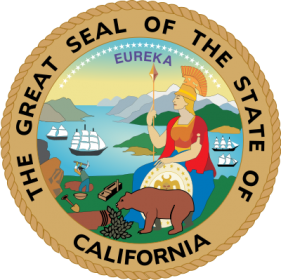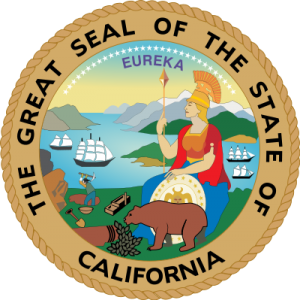Another Conversation with a US iGaming Insider
 Yesterday, I published the first half of an interview with US iGaming expert and lobbyist, Bill Pascrell III. Pascrell is a principal at the Princeton Public Affairs Group (PPAG.com) where he lobbies for PokerStars among others in both the iGaming industry, and the more traditional Brick and Mortar Casino business. Bill was speaking in-between panels and meeting at the San Francsco GIGse conferance. The main subject on the agenda of our interview was the launch of State regulated iGaming in New Jersey, and some of the mistakes that launch highlighted. We also discussed the state of iGaming in the rest of the US, and the potential future for the business, and this article covers Pascrell’s comments and thoughts on the wider US iGaming market.
Yesterday, I published the first half of an interview with US iGaming expert and lobbyist, Bill Pascrell III. Pascrell is a principal at the Princeton Public Affairs Group (PPAG.com) where he lobbies for PokerStars among others in both the iGaming industry, and the more traditional Brick and Mortar Casino business. Bill was speaking in-between panels and meeting at the San Francsco GIGse conferance. The main subject on the agenda of our interview was the launch of State regulated iGaming in New Jersey, and some of the mistakes that launch highlighted. We also discussed the state of iGaming in the rest of the US, and the potential future for the business, and this article covers Pascrell’s comments and thoughts on the wider US iGaming market.
Flushdraw(FD):Moving away form the direct New Jersey questions, ring-fenced markets have issues, with player liquidity being a major one. Do you think that state by state regulation of US iGaming is actually going to become the final solution or is it a stepping stone to something else?
Bill Pascrell III (BP3): “In January 2010 at ICE, I gave a speech, and Frank Fahrenkopf the former AGA director, was in the audience, and my opinion at that time… the pathway forward for this industry is through the states to ultimately convince a federal government to have a seamless regulatory scheme. I think it was really bad lobbying, bad politics and bad judgement to try to start this industry off at the federal level to begin with because millions of dollars were spent, not one bill was voted on at committee… So we know that that’s history. But what I said at that ICE meeting was, states are going to start the domino process. There will be a couple of states that will create the dominos to fall over to create more states, and I think you’re going to see in the next year or two, a few more states come on, hopefully that will begin to accelerate the process for compacting an international liquidity. Those conversations are happening. Nevada and Delaware have a compact, I would call it the ‘ho-hum’ compact. It’s not getting a lot of attention, nor have they utilised it so I’m really not sure of the utility of it. New Jersey was wise to put that on the shelf for a moment and focus on bigger priorities. I believe ultimately there will be an encouragement, and the federal government will ultimately get into this space. I think we’ve always had casino gaming done on a state by state basis, we don’t have a lot of laws that regulate gaming other than of course the silly sports betting PASPA law that was passed in 1992, which was a preclusion bill not a regulatory scheme. (It) gives a monopoly to a couple of states to do something which I think every state should have the right to do. I think once the federal government sees real revenue coming, its just a natural next step. Is it possible that we’ll never see a federal regulatory scheme? Yes, but I think that’s unlikely.”
(FD): Especially, as I understand it, it limits a state having a compact with an international market. Is that correct from your understanding?
(BP3): “Well, I believe that a state, and I have a legal opinion on this I’m not at liberty to share, but I believe the state of New Jersey can compact internationally and I think they are having those conversations now. (It’s possible) As long as the market has the same regulatory principles as New Jersey does. We have a tremendous amount of experience in America with states doing international agreements with other countries whether it be on agricultural resources or on border protections or water and sharing of natural resources etc. So I think some could argue that Congress could come in and step in and preclude it (but) I don’t believe current congressional authority precludes it. Obviously the state of New Jersey should they go forward with an international liquidity agreement, they’re going to have to get the Justice department involved because the last thing they would want is to go forward with that and then have Justice cut a shot at them.”
(FD): California also seems to be on the road to iGaming of some description. Do you think the launch on the west coast is going to draw attention and maybe some of the marketing resources a
way from existing US iGaming markets, because of the size of California?
(BP3): California, when and if it does happen, is another major transformational development but I don’t think it’s going to happen any time soon. I feel that the regulators and some of the political leadership in the state want to do it, its just a lot more difficult when you have a state the size of many countries, or bigger than many countries. 30m+ people. That’s a huge undertaking. A state four times the size of NJ has four times the headaches and four times the opportunity. I’ve been having this conversation about California for the past 5 years Granted, that doesn’t mean that people should just sit back, you’ve got to push harder but the problem in California is the tribes have an incredible amount of political clout that they deserve and they have earned, and they need to be at the table. Right now the tribes are not all on the same page, So I think that that’s a constant battle. There’s an election for Governor this year, I don’t think the Governor wants to deal with this in an election year I think the earliest we’ll see California doing something is perhaps sometime next year. Then the question becomes: how did I get into the quintessential issue of bad actors and bad assets?”
(FD): That leads me onto the next thing I was going to ask you about. What do you think of the bad actor clauses? They’ve appeared in Nevada, and there are some in the draft bill in California. Are they consumer protection, are they just businesses protecting themselves? Or are they something else entirely?
(BP3): “They are anti-competitive. They’re put into bills by companies that are insecure and feel threatened, its a way for them to protect what they have (and) to block out other industry leaders or competitors. That being said, I believe the way to handle the bad actor issue is to leave it up to the regulators to legislate it, let the regulators decide who should get a licence and who shouldn’t. In addition to that, I also believe that the state of Nevada made a major mistake with their bad actor clause that they’re going to live to regret. Not only that, I believe that the Governor Sandoval, should he be Governor when PokerStars comes into the US market, will take that bad actor clause out, immediately or pay the consequences of it.”
(FD):By the end of 2016, where would you like to see the regulated US iGaming market, and where do you think we are actually going to be?
(BP3): “By the end of 2016, that will be the end of our third full year, we will have 36 full months of data and information, I am hoping that there is better education about the industry, Some of the things that were said at this GIGse conference by the politicians who came in to (make) speeches were so incredibly inaccurate and horribly irresponsible and paid for by Sheldon Adelson. That’s a problem that the industry needs to get together just collaboratively to educate folks that this is a good industry, it’s a secure industry, it doesn’t cannibalise the bricks and mortar. I hope that by the end of 2016 we see between 5 and 10 states in the space, we see compacting, we see international liquidity, we see a smoother payment process in place and we see people and states in our businesses, states and American citizens making money off of online.”
(FD): Do you think Sheldon Adelson is a as dangerous as a lot of people seem to make out at the moment because of his almost limitless funds and his willingness to spend them lobbying against US iGaming? Is he the boogieman? Is he the one we should be worried about?
(BP3): “First of all I think any efforts by him in Washington DC are a waste of time but I think he’s beginning to realise the real game is being played state by state. And I think he’s a dangerous threat to the industry, and he’s somebody that the industry needs to be mindful of. I do not think Sheldon is stupid, like many have tried to argue. I don’t think he is spending money wisely, because I think if you’re going to hire a hired gun to do your advocacy and your lobbying and put forward your agenda, you not only have to arm them by paying them, you have to give them the bullets to fire through the holes of our arguments. Right now, they’ve been modestly successful, in terms of a public relations campaign because most people are ignorant about online. If somebody like Willie Brown says ‘The online industry is cannibalising the offline industry’, most people don’t research it, they just take it at face value.
There’s no proof of that. (The belief) that online creates more problem gamblers, as a matter of fact, it’s the direct opposite. What do we do? We don’t regulate it so we just allow it to be like the wild west? The argument to me that Sheldon is positive is not very persuasive but right now its being done in a vacuum because there is no real industry collaboration to counter it. So yes, I do think Sheldon is a threat, and I’m hoping that the industry will wake up and begin to come together and collaborate it will be to everybody’s advantage and to everybody’s bottom line advantage.”
At this point, Bill had to head back to the conference. His insight into the wider US iGaming markets and the future of these markets has given me a peek behind the curtain of the process that is happening as you read this. iGaming markets appear to be slowly expanding across the country, and hopefully Pascrell’s predictions for 2016 will be realised, and if fortune is kind, exceeded. Sheldon Adelson, and those who are anti US iGaming, have different plans for the future. The US legislative process is going to have to be the one to determine who’s plans for the future are achieved, and who’s goals are consigned to the scrapheap. I know which one I’m rooting for, but it’s now in the hands of the elected politicians around the US, and that’s always a scary thought.






















COMMENTS